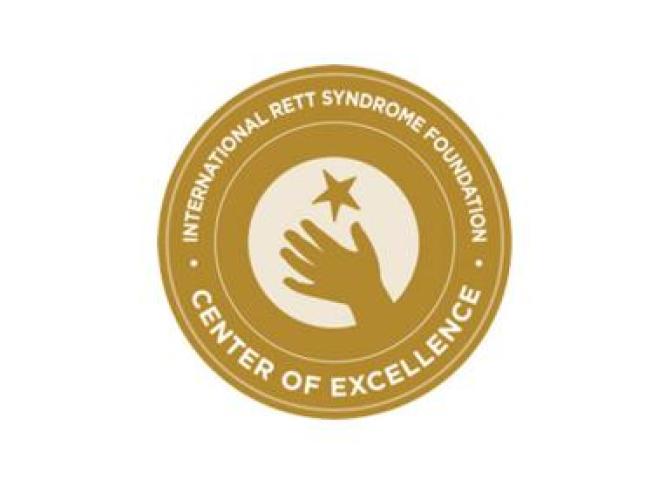The Rett Syndrome and Related Disorders Clinic at Kennedy Krieger provides expert diagnostic services and treatment for children, adolescents and adults with Rett syndrome and associated disorders.
Who We Are
Rett syndrome (RTT) Rett syndrome, also known as RTT, is a neurological disorder that primarily affects girls, although boys with the disorder are increasingly being identified. It is characterized by normal early development during the first six to 18 months of life, followed by a period of developmental stagnation or regression affecting language, gait and hand use. Distinctive hand movements, irregular breathing and other multisystem manifestations typically emerge next. Other common features include epilepsy, intellectual challenges and slowed head growth.
Although Rett syndrome is caused by mutations in the MECP2 gene, several genetic disorders (FOXG1 syndrome, CDKL5 deficiency disorder and MECP2 duplication syndrome) have a similar clinical presentation, and patients with these genetic disorders are also seen in this clinic.
Kennedy Krieger Institute, through its Center for Synaptic Disorders, is one of the few healthcare providers in the Mid-Atlantic that diagnoses and treats these syndromes, through comprehensive medical evaluations and clinical care. In addition to our expertise in these rare disorders, our interdisciplinary resources mean that our patients’ needs can be met at one location. It is our goal to help our patients and their families gain a better understanding of the condition and access appropriate medical care and therapeutic interventions to improve their overall health and quality of life.
Diagnosing Rett Syndrome
Clinical genetic testing for Rett syndrome is done using standard genome sequencing and deletion/duplication testing. If a genetic diagnosis has not yet been made, a genetic counselor guides patients and their families through the diagnostic process. Based on the results of such testing and the initial evaluation, our team develops an individualized care plan, modifying it as the patient’s needs change over time.
Our Team
Kennedy Krieger is home to a unique interdisciplinary collaboration of Rett syndrome experts. Our clinicians, research scientists and rehabilitation professionals work together to provide optimal interdisciplinary care for patients. Because Rett syndrome can affect many different systems in the body, treating a patient with the disorder often requires the collaboration of a wide range of medical specialists. Key specialists who see our patients include those in the following fields:
- Assistive communication
- Clinical social work
- Gastroenterology
- Genetic counseling
- Feeding
- Neurology
- Nutrition
- Occupational therapy
- Orthopedics
- Physical therapy
- Palliative care
Treatment
Each patient’s treatment plan includes individualized interventions designed to help the patient cope with the loss of abilities, improve or preserve function, manage seizures, and communicate via advanced technologies like eye gaze-tracking communication devices. These interventions address the full spectrum of clinical concerns. Additionally, we can also facilitate access to Kennedy Krieger’s comprehensive team of specialists to assist with specific educational, behavioral and other therapy needs.
Related Materials and Information

International Rett Syndrome Foundation Center of Excellence
Kennedy Krieger Institute is one of 15 institutions in the United States that has been designated as a Center of Excellence by the International Rett Syndrome Foundation. This special honor recognizes Kennedy Krieger’s dedication to providing best-in-class clinical care for patients with Rett syndrome, a rare neurological and developmental disorder.
